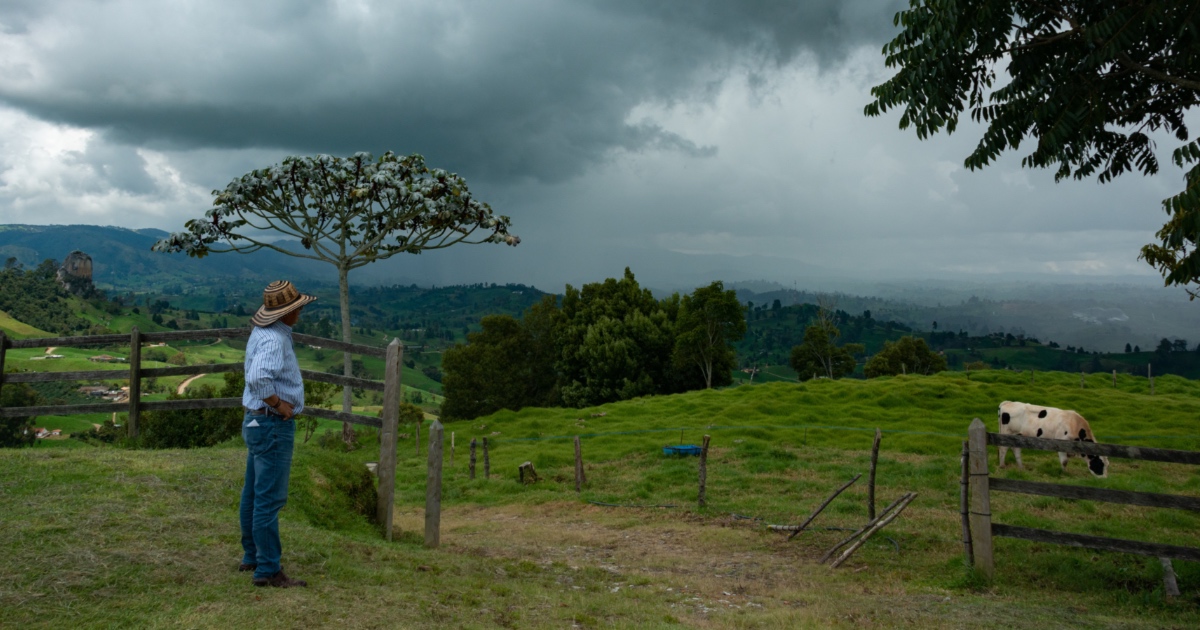How to cope with overwhelm and trauma
A wave of anger rises up in your body. Panic that makes your heart race and your chest feel tight. Gritted teeth and clenched jaws. The feeling of utter helplessness.
Overwhelm and trauma can manifest themselves in many different ways. But the feelings are often all-consuming, uncomfortable and irrepressible. And they’re impacting far too many Australians – particularly in the regional areas.
Why have the regions been suffering?
It’s been a tumultuous time for residents all over the globe in recent years. We’ve dealt with significant natural disasters to major threats to world peace. But those in regional Australia have seen some truly devastating times.
Those living in regional areas have been hit with the pandemic and all of the health, financial, employment, relationship and mental health challenges associated with it. But they’ve also been slammed with a multitude of challenges, from bad weather affecting crops and tourism, to droughts, floods, bushfires and more.
Of course, these hardships don’t come alone. Those living in isolated areas can often feel additional pressure due to being away from friends and family during hard times. They’re also further away from support services – not to mention the skills shortage plaguing our regions.
All of these elements have combined to create a new pandemic in regional towns – one of overwhelm and trauma.

How to cope with overwhelm and trauma article series
With so many struggling, we wanted to tackle this new pandemic head-on with a series of articles discussing how to cope with overwhelm and trauma, particularly focused on those living in the regional areas. In this first article of the series, we will cover what overwhelm and trauma are, why people living in regional areas may be dealing with these mental health issues and how you can find the support you need.
What is overwhelm and trauma?
First, it’s important to remember that all emotions are natural and acceptable – and whatever you are feeling is OK. Hardships affect each of us differently. And how one person responds will be completely different to how another person might deal with the same situation. This doesn’t mean that one person is wrong, or weak. All of our feelings are valid.
Ongoing challenges like the ones described above can result in a range of mental health issues. The Australian Institute of Health and Welfare (AIHW) says there has been a rise in the use of mental health services and an increase in psychological distress during the pandemic. These have been inflated in the regional areas, as we deal with our other challenges. And now we’re seeing an associated rise in anxiety, depression, addictions, family breakdowns and even absenteeism and presenteeism at work.
The impact between chronic trauma and emotional overwhelm
Chronic trauma can result from repeated and prolonged exposure to distressing and traumatic events over a period of time. Emotional overwhelm, on the other hand, is when we feel consumed by our emotional state and find it difficult to function as we would normally.
Overwhelm can be caused by many different things. But we often feel it in response to life stressors that feel unmanageable. Many people can feel stress and then return to their normal lives. But those who have experienced trauma in the past may find it difficult to manage their stress, resulting in recurrent and persistent emotional overwhelm.
This is particularly concerning around emotionally triggering and financially stressful times such as Christmas. No matter how minor the issue at hand, people who are in trauma can be easily reactivated into fight or flight mode and become re-traumatised very quickly.

Tackling overwhelm and trauma
Why does it matter?
Ignoring the problem when it comes to emotional and mental health will not solve it in the long term. Overwhelm and trauma can impact all areas of your life – including emotionally, socially and physically.
The AIHW explains that the experience of trauma can also contribute to the development of other forms of mental illness. These might be psychosis, schizophrenia, eating disorders, depressive and anxiety disorders, alcohol and substance use disorders and self-harm and suicide-related behaviours. It can also affect your relationships with friends and family members.
Time is of the essence when addressing these mental health challenges, which means that once you have decided you are ready to cope with your overwhelm and trauma, it’s important to seek help as soon as possible.
How to cope with overwhelm and trauma – practical tips
The remaining four articles in this blog series will explore practical tips on how to cope with overwhelm and trauma. They’ll focus on your mind, body, spirit and business to cope with overwhelm and trauma. In the meantime, we have listed a few simple steps if you feel that you could use support:
Contact a crisis support service such as:
Lifeline: 13 11 14
Suicide Call Back Service: 1300 659 467
Beyond Blue: 1300 224 636
MensLine Australia: 1300 789 978
Kids Helpline: 1800 551 800
Find more mental health resources online here.
Try the free Smiling Mind app loved by the HOLGRO team.
HOLGRO offers a range of life-boosting courses that will help your mind, body and business. Try Easing Stress and Overwhelm or SEEDS OF HOPE – The Survival Series.
Seek professional help. These are issues we cannot deal with alone. And there are many trained experts who have science-backed strategies to cope with overwhelm and trauma.

What’s Next?
Now that you have a little more insight into the hardships faced by regional areas and how they can lead to mental health issues, make sure you check out the next article in our blog series for practical advice on how to focus on your mind to cope with overwhelm and trauma.
DISCLAIMER: The information contained in this article should be considered general advice only and professional advice should always be obtained.
If you need to speak to someone, please call:
Lifeline: 131 114
Beyond Blue: 1300 22 4636



 Author:
Author: 



